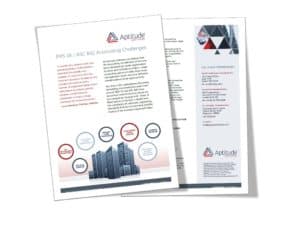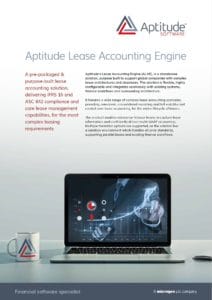The new leasing standard poses significant accounting and finance issues with wide implications for your finance operations. These may include:
- Judgements and consistency of treatments: Accounting decisions will impact financial ratios & KPIs. Finance teams will need to model scenarios to understand and decide on the best judgements for their company.
- Calculation complexity: There will be a significant increase in the number of calculations, frequency and the level of granularity at which they will need to be performed.
- Handling of Multi-GAAP requirements: Since there is little harmonization between the IFRS & US GAAPs, organizations will need to ensure multi-GAAP accounting capabilities to facilitate audits and finance understanding.
- Potential interaction with other standards: Interactions with other regulatory requirements like IFRS 15/ASC 606 and IFRS 9/CECL will add complexity.
- Transitions: Will need to assess the multiple options of calculating the Right of Use asset under IFRS 16 & ASC 842.
While the new standard does pose challenges, it also presents an opportunity for organizations to centralize their lease portfolio and get a better understanding of the company’s lease positions. Ideally, the calculations performed at inception for the full expected life of the lease can provide increased support for budgeting & forecasting for added strategic value.
“Those organizations facing the fastest compliance timeline are publicly traded and operating on a calendar fiscal year. Many are spending the balance of 2016 consolidating lease data so that calculations can begin in early 2017, as ultimate compliance with these new rules in 2019 will require lookback reporting for 2017 and 2018. The new lease accounting requirements are not a niche finance and accounting concern and may have broad-reaching impacts that require input from multiple people from different parts of an organization.” (source)
-Sean Torr, Director Deloitte & Touche LLP



